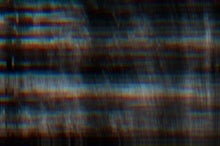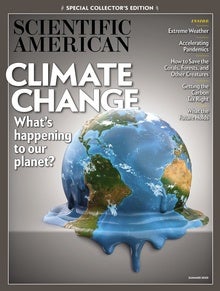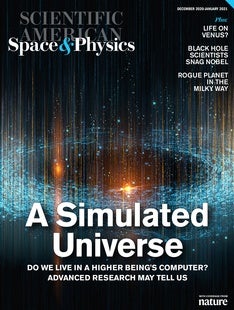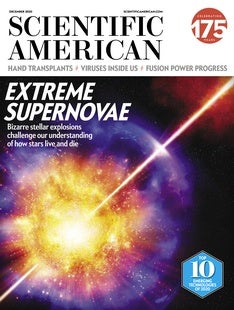 |
| December 16, 2020 |
Dear Reader,
Researchers have made the most precise measurement of one of the fundamental constants, called the fine-structure constant, providing physicists with a vital tool to verify the consistency of their most cherished theoretical models. From our next story, national security experts say the incoming Biden-Harris administration should press U.S. defense and intelligence agencies to do more about climate change. And, in our January issue, the editors of Scientific American argue that it's time to fix flawed Internet regulations on free speech that mainly protect tech giants like Facebook and Twitter, not their users. |
| | Sunya Bhutta, Senior Editor, Audience Engagement
@sunyaaa | |
 |
| |
| |
| |
| |
| |
| |
| |
FROM THE STORE
 | | Scientific American Unlimited For just $199 a year, Scientific American Unlimited gives you access to all of our publications, apps and the full website experience. |  | | |
| |
| QUOTE OF THE DAY
 "The law was designed to protect Internet companies, many in their infancy at the time, from legal actions that could have held back their ability to innovate and grow. But today immunity from consequences has also allowed hate speech, harassment and misinformation to flourish." The Editors of Scientific American | |
LATEST ISSUES
 |
| |
| Questions? Comments?  | |
| Download the Scientific American App |
| |
| |





















Comments
Post a Comment